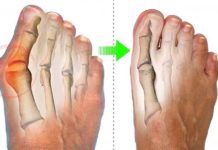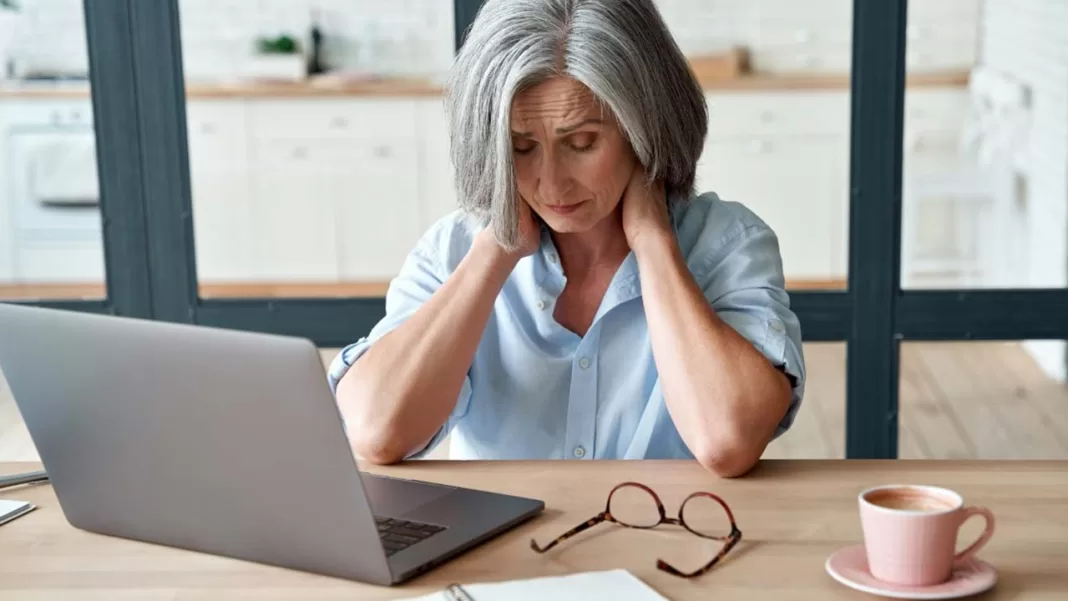In addition to hot flashes and night sweats, Many women also suffer from emotional disturbances, such as stress and anxiety, during menopause. The end of fertile life brings moments of tension and despair, without responding to any specific stimulus.
Although it is normal to feel a little worried from time to time, there are no major problems if it is a passing sensation. However, the repetition of symptoms and feelings of discomfort can interfere with daily life.
Understanding how and why anxiety appears during this stage will help you recognize and manage it to feel better. We will explain it to you now.
Profound changes at all levels
Menopause begins with the absence of menstruation for more than 12 consecutive months, which happens between 45 and 55 years old. The changes typical of the stage They are explained, for the most part, by the gradual decrease in the production of estrogens..
Among menopausal women, the most common physical symptoms are:
- Hot flashes
- Weight gain
- Sleep disorders
- Dryness of the skin and vagina
In addition, the risk of suffering from cardiovascular problems, such as hypercholesterolemia and high blood pressureThere is also a greater chance of suffering from musculoskeletal disorders and osteoporosis.
But, in addition to the physical transformations, several women experience anxiety. Feelings of nervousness and worry intensifywith greater vulnerability and emotional instability.
Why do you feel this way?
Anxiety in menopause can be attributed to the hormonal changes. During the climacteric, which encompasses premenopause and postmenopause, estrogen and progesterone levels decrease, affecting the balance of neurotransmitters such as serotonin, GABA, acetylcholine and dopamine, responsible for regulating moods.
When estrogen levels decrease, so do serotonin levels.the hormone that improves mood. At the same time, cortisol, a substance associated with stress, increases.
Sleep is another factor that can explain the discomfort. Scientific studies have shown that women experience sleep disorders or insomnia during menopause, which can aggravate anxiety. In addition, hot flashes, fatigue and pain affect mood and self-esteem.
Significant life changes cannot be ignored either. Children leaving home, the need to care for elderly parents, or changes in long-standing relationships, such as divorce, can increase anxiety levels.
Finally, the combination of less estrogen and an unhealthy diet unbalances the intestinal microbiota. The reduction of beneficial bacteria in the intestine could exacerbate anxiety and increase the risk of depression.
Symptoms of anxiety during menopause
Not all women experience anxiety in the same way. However, there are common symptoms that can help you identify the problem:
- Inability to relax: It becomes difficult to calm the mind and enjoy everyday moments.
- Excessive nervousness and worry: There are intense feelings of tension without an apparent cause.
- Trouble concentrating: There is difficulty focusing on tasks or remembering information, which can interfere with job performance and daily activities.
- Physical symptoms: Mental discomfort can translate into physical manifestations, such as palpitations, tachycardia excessive sweating, tremors, feeling of shortness of breath and difficulty breathing.
- Irritability: There are sudden changes in mood, which may result in anger and frustration. You may feel very upset or upset by situations that you would normally handle calmly.
- Fear or panic: episodes of intense fear, feeling out of control, or recurring thoughts of impending doom occur. Some women may experience panic attackswhich are characterized by overwhelming fear and intense physical symptoms.
The duration of episodes and the severity of symptoms vary from person to person. Some experience them transiently and occasionally, while others may face persistent and debilitating anxiety.
Once the menopausal transition is complete and hormones begin to stabilise, most women notice that their anxiety levels decrease. However, anxiety can still be experienced, especially when there are other associated factors.
What can you do?
Although the cessation of menstruation is a natural process that all women go through, you shouldn’t assume that feeling unwell is an inevitable part of it. It’s normal for everyone to feel worried and nervous from time to time. However, if anxiety persists over time and interferes with daily life, it requires an appropriate approach.
In case you feel too nervous, worried, irritable or frustrated, identify the early signs of anxiety will allow you to take proactive steps to manage it. Consulting your doctor and telling him or her what is happening to you is also an important step in finding a solution. With the appropriate support, the use of medications, lifestyle changes, certain practices and specific therapies, you can experience this moment with well-being.
The following are some strategies that may help you. However, not all of them work equally for every woman.
Do exercise
Physical activity can help reduce anxiety levels and improve mood. Joining a gym, going for a run, walking or dancing at home can be beneficial actions.
Practice relaxation techniques
The meditation, yoga, mindfulness or the breathing exercises can promote calmness and reduce anxiety. For example, the technique of inhaling for 4 seconds, holding for 7 seconds, and exhaling for 8 seconds is very effective in reducing stress.
Eat well
Maintaining a balanced diet, rich in fruits, vegetables and healthy foods, will help you feel better. Reduce ultra-processed foods and refined sugars. Instead, choose foods that promote intestinal health such as fermented ones.
Taking care of the microbiota It is an excellent way to improve the symptoms of menopause. To do this, it is also useful to limit the consumption of caffeine, tobacco and alcohol.
Rest
Respect circadian rhythms—walking during the day and sleeping at night—and make sure you get 7 to 9 hours of sleep a night. A sufficient and appropriate rest will help you gain emotional stability.
Seek support and socialize
Loneliness, lack of purpose in life, distance from nature, lack of movement, social isolation and not feeling a sense of belonging can all affect you emotionally. Seek to socialize and do things that you enjoy and that make you feel better. Talk to friends, family or health professionals for support.
Try natural remedies
Some herbal teas and infusions to relax such as chamomile or lemon balm, may have calming properties that help relieve anxiety. Consult your doctor for safe use. Aromatherapy, hypnotherapy and acupuncture can also contribute.
Find a therapist
If anxiety symptoms become more severe, seek help from a mental health expert. Professional guidance can give you concrete tools to better manage your symptoms.
Consider using medications
In some cases, The doctor may consider it necessary to prescribe certain drugs to restore well-being. Hormone replacement therapy is a strategy that helps control imbalances and their effects. In addition, in situations of severe and generalized anxiety, it may be necessary to resort to anti-anxiety medications.
You don’t have to live with anxiety
It is normal to experience increased anxiety during menopause, due to hormonal and emotional changes. However, Panic attacks and depression are not an expected or acceptable part of life.
If your symptoms become overwhelming, you don’t have to resign yourself to living with them. Seek professional help if your anxiety is constant despite your efforts to manage it, or if it interferes with work, home or social activities.
Menopause, with its challenges and changes, can be a difficult time, especially when emotional instability is added to the complexity of the transition.
Pay attention to your feelings and needs to adapt. You are not alone in the process; there are strategies and treatments available that can help you improve your quality of life.













